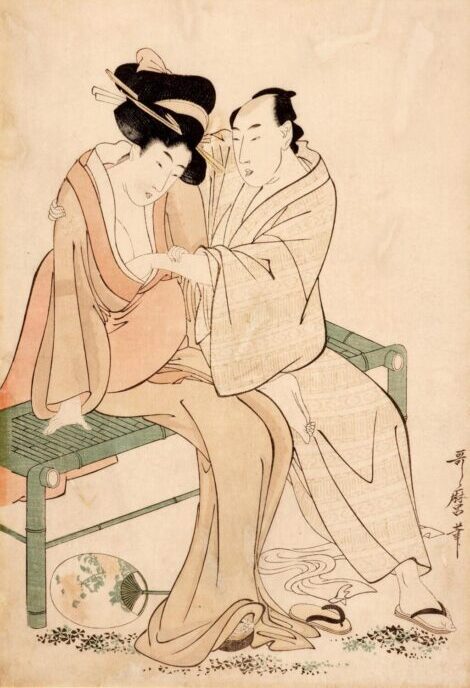The word kiss has a history as charmingly awkward as a first date. Its roots go back to Old English cyssan which simply meant to touch with the lips, a definition that sounds like it was written by someone who had only ever seen kissing in a medieval instruction manual. Dig a little deeper and you find the Proto Germanic kussjan which probably mimics the actual sound of a kiss. Yes our ancestors named this act after the noise it makes. Imagine if we did that for everything, ordering a crunch for lunch or asking for a slurp at the coffee shop.
In Japan the sound of a kiss gets its own onomatopoeia too. Japanese speakers borrowed the English loanword kisu but manga and anime gave us chu to capture that quick lip smack. Public displays of affection remain rare on Tokyo streets where lovers might share a shy shoulder hug rather than a full frontal smooch. By contrast in Paris cheek kisses are practically a greeting ritual, in New York you might find solo smooches on park benches and in Rio a kiss can mean anything from a flirtatious peck to a torrid telenovela moment.
On a personal level kissing can be a big deal at least where it is common. Studies in the West suggest that couples who kiss more often report higher satisfaction in their relationships so if you want to keep the spark alive maybe skip the bouquet and go straight for the smooch. In Japan research shows younger generations exchange fewer public kisses but love sharing digital chu emoji in group chats. Perhaps because a little mystery fuels romance or simply because nobody wants garlic breath floating over Line.
So the next time you pucker up remember you are taking part in an ancient possibly onomatopoeic tradition that is as loaded with cultural meaning as it is with emotional risk. Whether it is a peck at sunrise a dramatic movie kiss or a private late night chu beneath cherry blossoms your lips are writing history with every smooch.
An amorous couple on a bamboo bench by Kitagawa Utamaro (1754-1806)
Author’s Note
No courtly bards were consulted though one almost tried to rhyme everything in iambic pentameter. I suggest you practice your best chu sound today, just remember the breath mints. After all history may be loud but fresh breath never goes out of style.


Leave a Reply